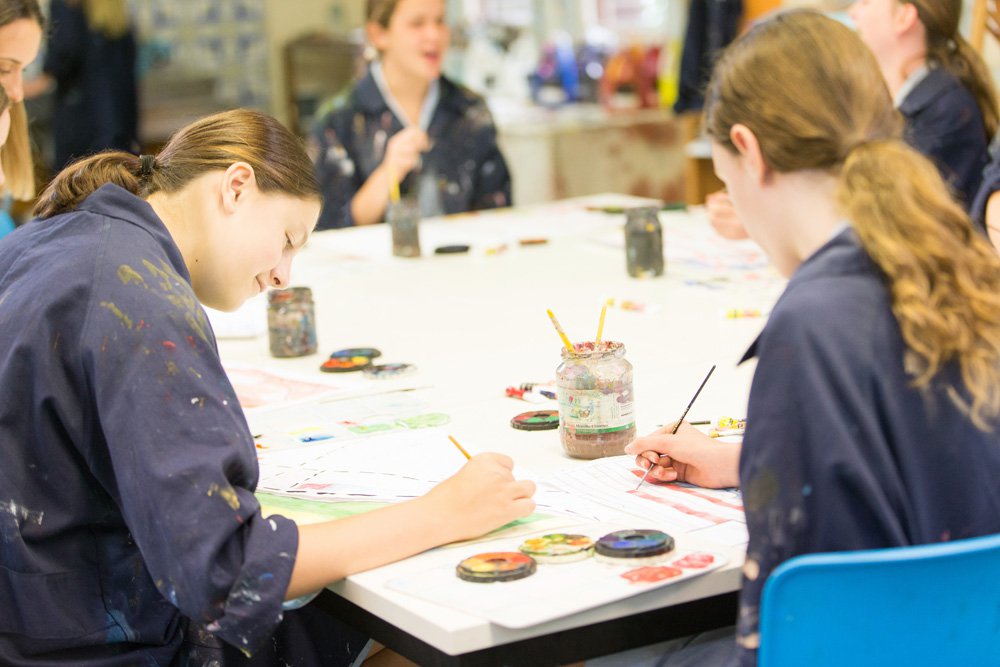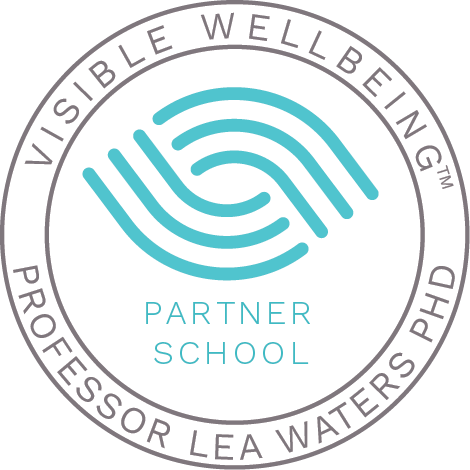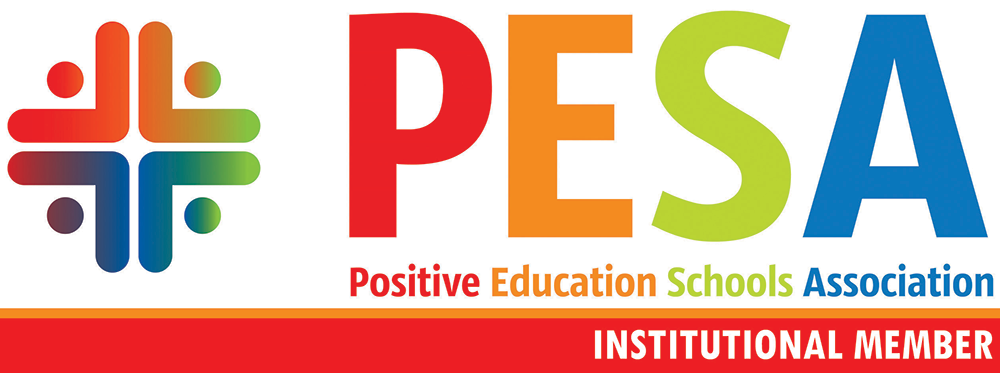TEACHING & LEARNING
Students at St Vincent’s College benefit from a long and fine tradition of learning and teaching success.
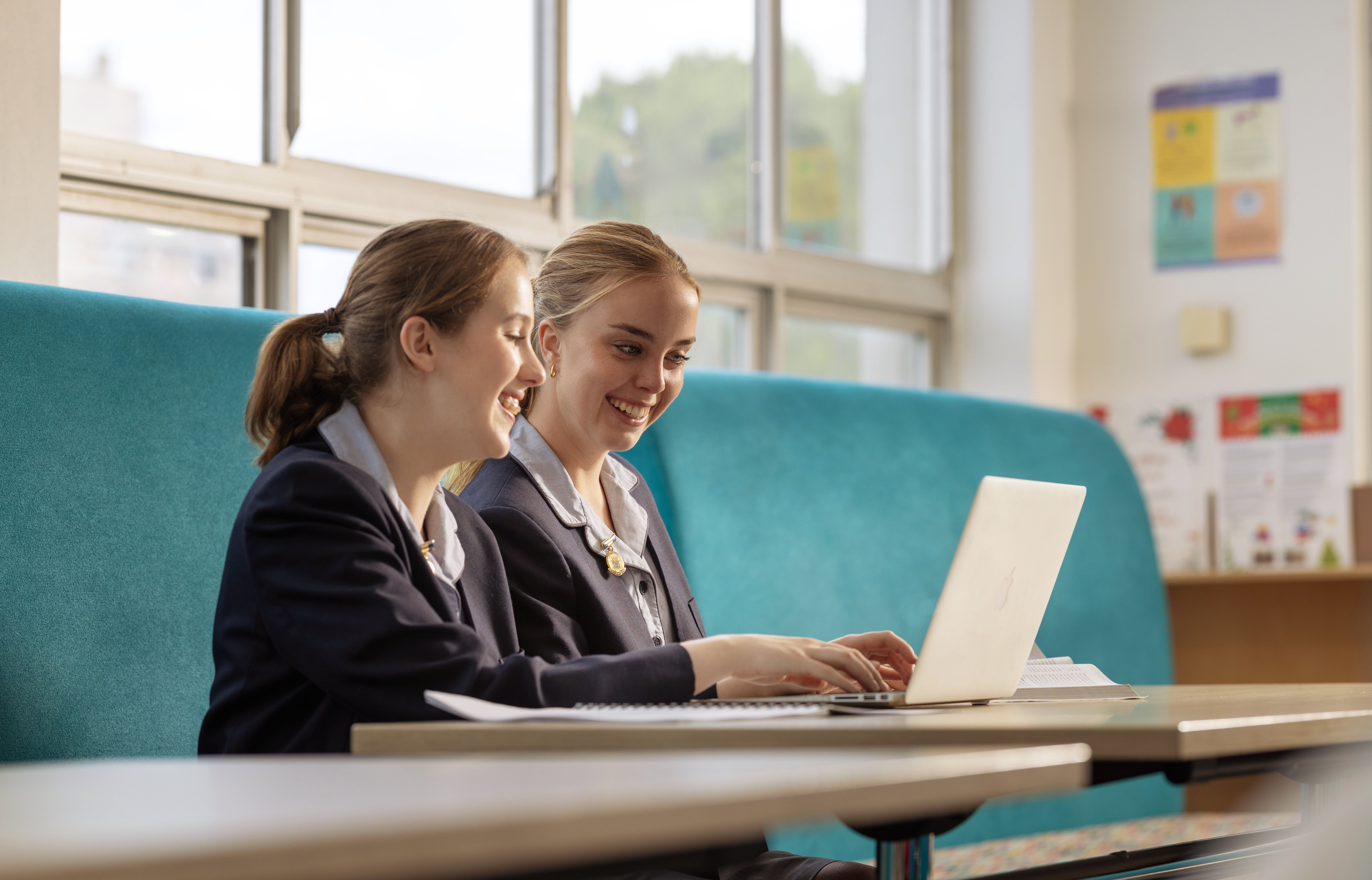
TEACHING & LEARNING
Students at St Vincent’s College benefit from a long and fine tradition of learning and teaching success.
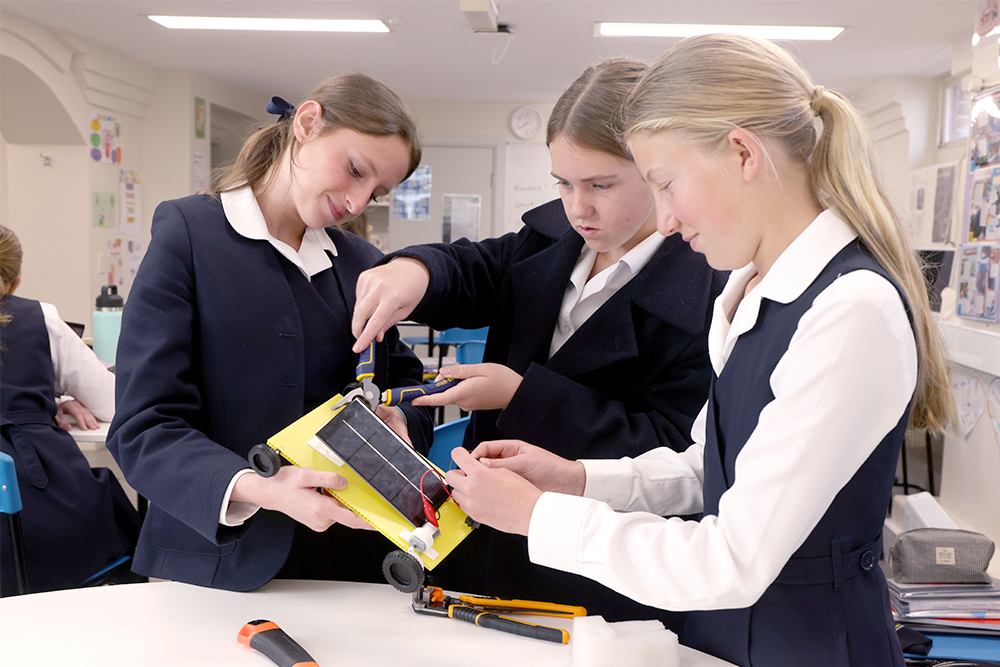
TEACHING & LEARNING
Students at St Vincent’s College benefit from a long and fine tradition of learning and teaching success.
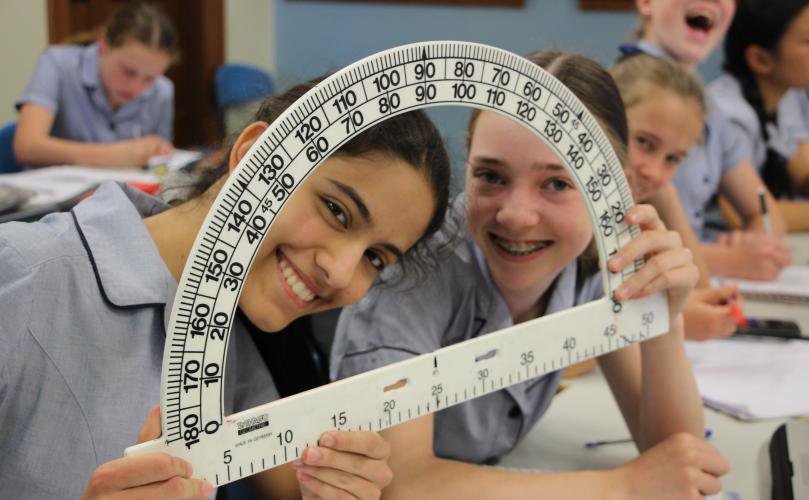
TEACHING & LEARNING
Students at St Vincent’s College benefit from a long and fine tradition of learning and teaching success.
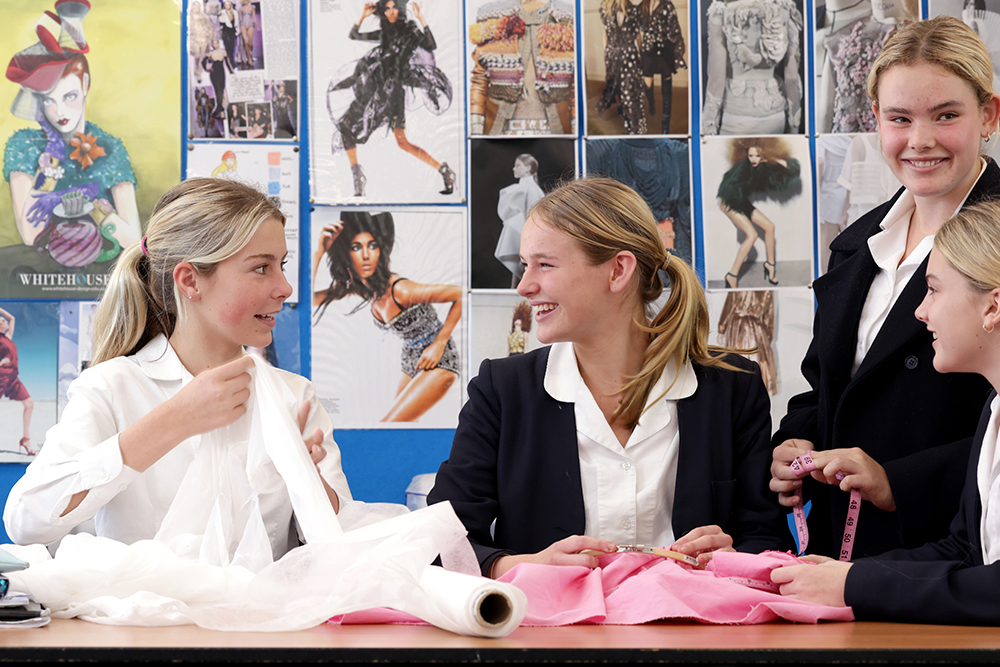
TEACHING & LEARNING
Students at St Vincent’s College benefit from a long and fine tradition of learning and teaching success.
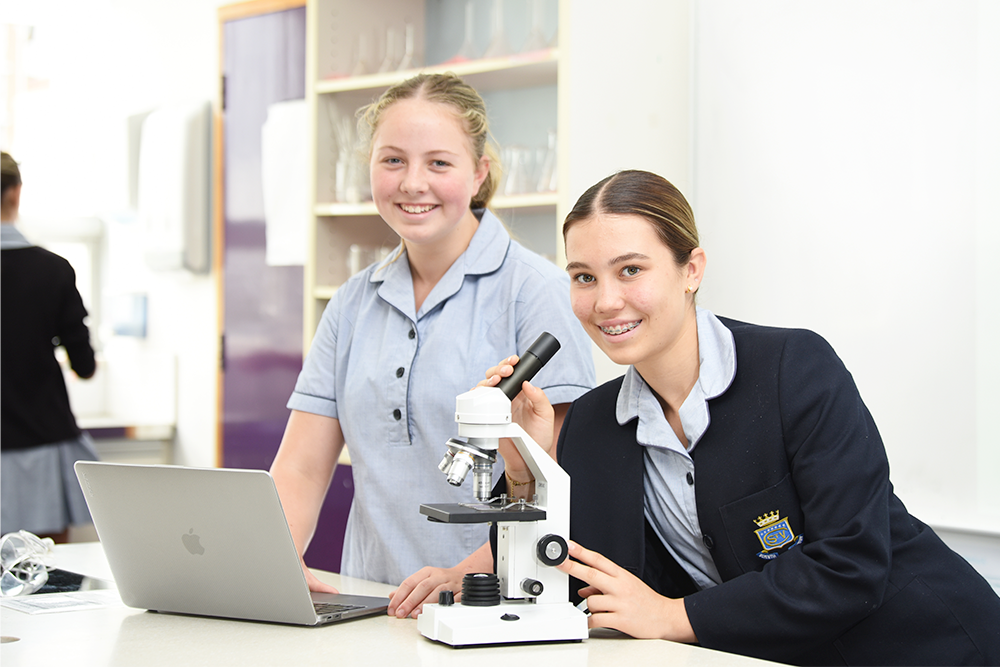
St Vincent’s College Learning Framework
Learning at St Vincent’s College is guided by the Visible Wellbeing Framework and driven by cura personalis, developing students of character who are courageous women of action, independent of thought, compassionate in attitude, strong in purpose and confident to act.
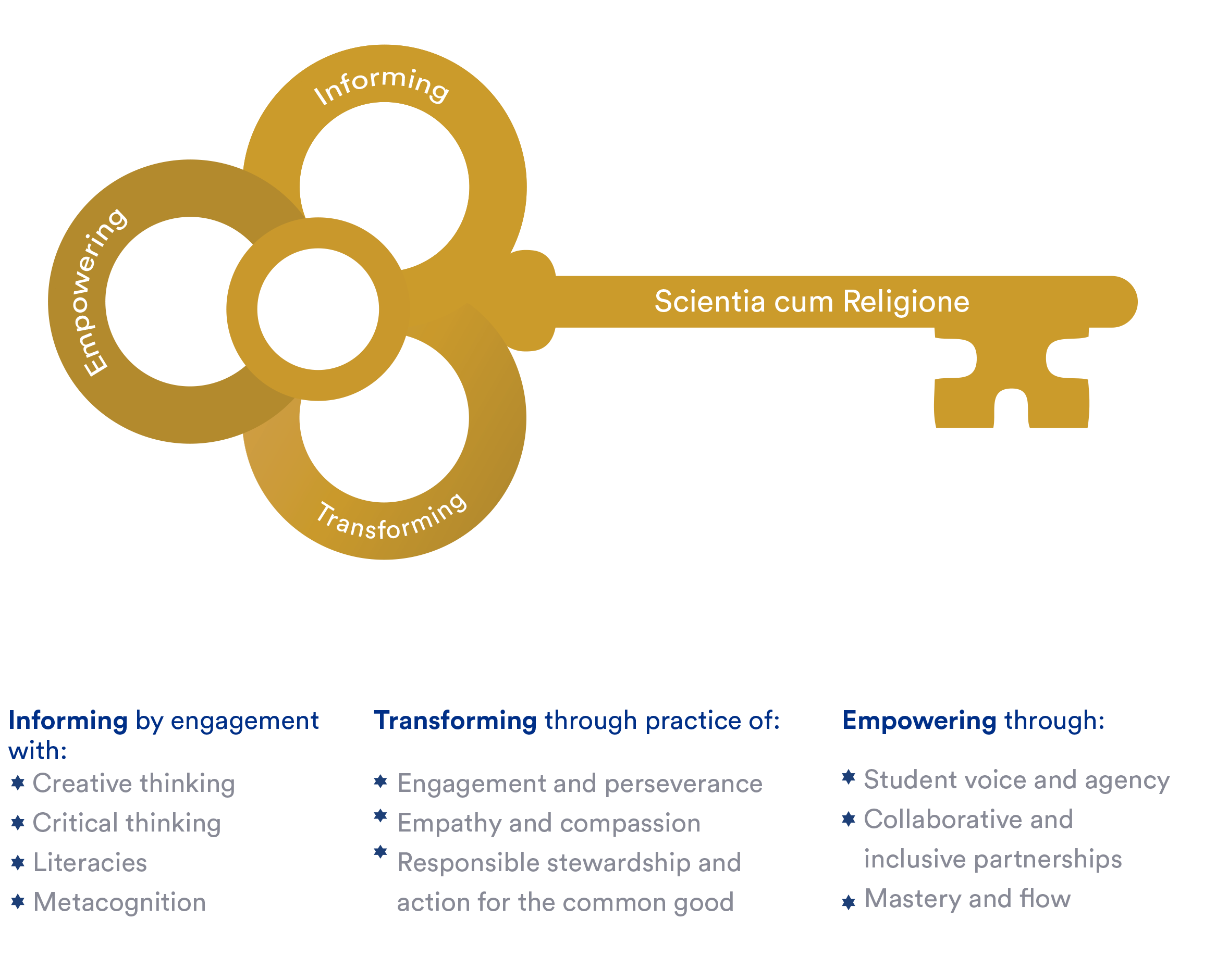
Years Seven and Eight (Stage 4)
Students follow a common curriculum comprising Religious Studies, English, Mathematics, Science, History, Geography, Languages (French or Italian), Technology, Visual Arts, Music and Personal Development, Health and Physical Education.
Years Nine and Ten (Stage 5)
Students follow a core curriculum which comprises Religious Studies, English, Mathematics, Science, Australian History, Australian Geography and Personal Development, Health and Physical Education. Additional studies reflecting the students’ abilities and interests are chosen from Commerce, Dance, Design and Technology, Drama, French, Geography, History, Italian, STEM, Music, Photography and Digital Media, Physical Activity and Sports Studies, Textiles Technology, Food Technology and Visual Arts.
Years Eleven and Twelve (Stage 6)
All students must undertake courses in Studies of Religion and English.
Subjects offered at St Vincent’s College are:
English Advanced, English Standard, English Extension 1, Mathematics Standard 1 and 2, Mathematics Advanced, Mathematics Extension 1, Physics, Chemistry, Biology, Design & Technology, Economics, Textiles Technology, Earth & Environmental Science, Society & Culture, Studies of Religion (1 or 2 Units), Ancient History, Modern History, Business Studies, Legal Studies, Languages (French and Italian - beginners or continuers), Drama, Dance, Health and Movement Science, Community and Family Studies, Visual Arts, Entertainment Industry CUA30420 (VET course), Music Course 1, Music Course 2.
Students are also able to study courses through TAFE.
Year Twelve
Additional extension courses are offered to Year 12 students, including:
Mathematics Extension 2, English Extension 2, History Extension, Italian Extension, Music Extension and Science Extension.
Study Habits
The College’s Learning Framework outlines an ambitious intention to foster courageous and confident learners, able to harness a range of skills and engage in diverse experiences as they become knowledgeable about themselves, each other and the world.
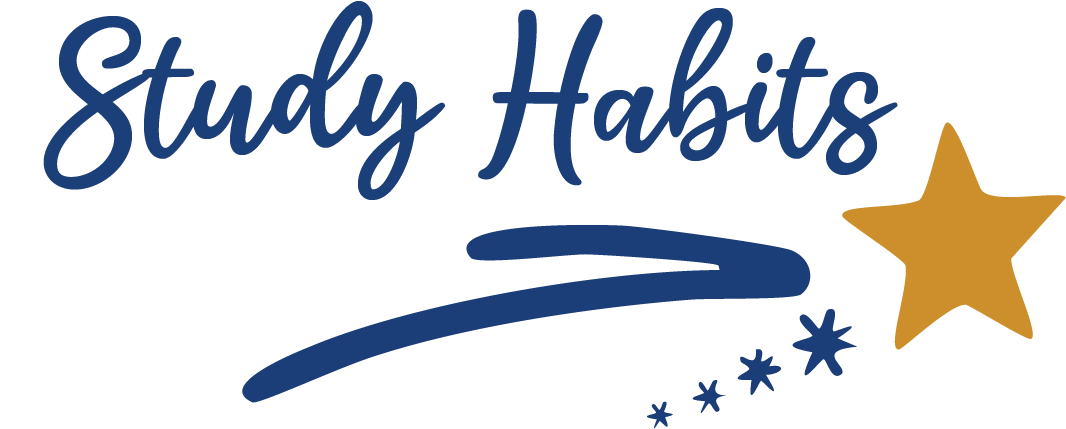
Religious Studies
Our College is Catholic and the College community is committed to the gospel values of Jesus and charism of Mary Aikenhead Ministries. Knowledge of the world illumined by the light of faith is a basic principle of our College philosophy, as the motto states 'Scientia cum Religione' (Religion and Knowledge united).
Religious Studies strives to relate all learning to the Gospel of Jesus so that students develop sensitivity to each other, expressed in service and social justice. The worth and dignity of each person are recognised in the responsibility each has to one another.
The Religious Studies Department seeks to mentor students in their faith, providing opportunities for knowledge about the Christian story within the context of the Catholic tradition and the Religious Sisters of Charity.
Curriculum
Years 7-10
Religious Education programs follow the rationale, aims, objectives and outcomes of the Sydney Archdiocese Religious Education curriculum. Students build on their previous religious education and realise the expectations of what being a follower of Jesus Christ entails. Ignatian Pedagogy underpins all classroom learning activities and assessments. Students complete a range of common assessment tasks and experience various methods of prayer, but in particular, prayer is steeped in the tradition of St Ignatius of Loyola.
Years 11-12
In Years 11 and 12 students undertake the Studies of Religion [1 OR 2 Unit] Higher School Certificate course as mandated by the NSW Education Standards Authority (NESA).
The Preliminary Course in Year 11 is a foundational study of World Religions, Religion in Australian Society pre 1945 and Religions of Ancient Origin.
The Higher School Certificate Course in Year 12 is a consolidation and extension of the Preliminary course. Students study specific aspects of Religious Traditions, Religion in Australia post 1945, Religion and Peace, Religion and Non-Religion.
IGNATIAN PEDAGOGY
Ignatian pedagogy underpins every aspect of learning at the College. Context, Experience, Reflection and Action, guide all lessons, programs, excursions and prayer at the College. In the tradition of St Ignatius, we aspire to find God in all things and reflect on all experiences in light of this.
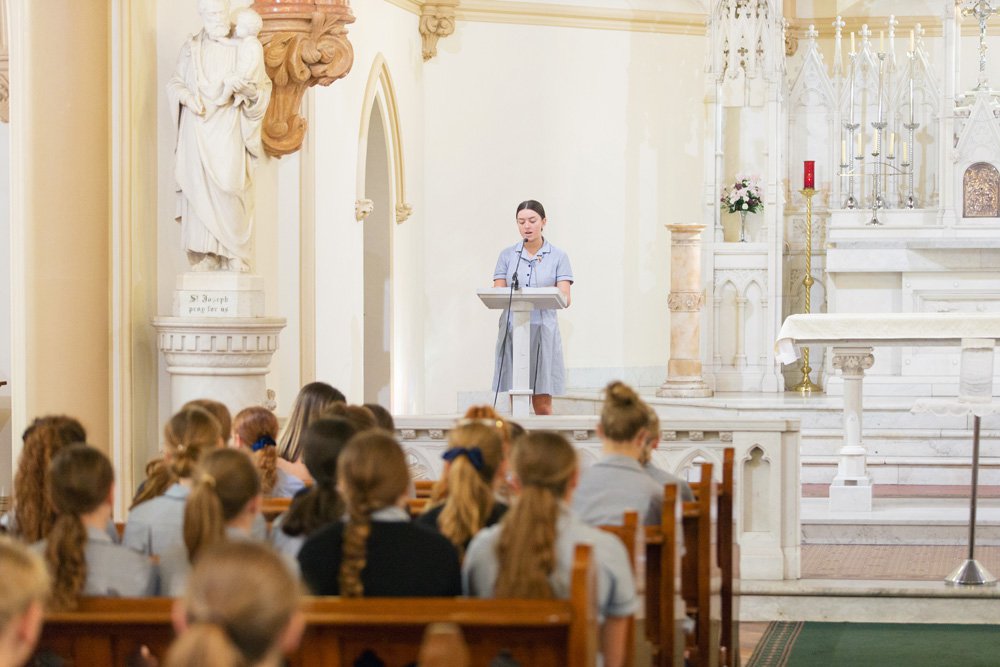
English
English at St Vincent's College aims to inspire a life-long love of literature, reading, writing and communicating. Studying English provides students with exciting opportunities to explore how literature can help us gain a deeper understanding of ourselves and the world around us and learn about experiences beyond our own personal contexts so that they can become engaged, empathetic and active global learners and citizens. Our English programmes align with the rationales and outcomes of the NSW Education Standards Authority (NESA) syllabuses and are underpinned by the Catholic Christian framework and the College’s values, thus supporting students to develop and express a system of personal values.
Our pedagogies focus on fostering students to be creative, critical, collaborative and reflective in their processes of thinking, reading, writing and communicating. Our teaching practices offer choice and a variety of learning activities, allowing opportunities for all students to develop their self-efficacy and maximise their learning potential to become confident, rigorous and independent learners.
The English Department offers a range of enrichment activities for students to further explore their literary interests and capabilities, including the following:
- inviting published authors to speak to and work with students
- annual public speaking, creative writing and poetry competitions
- encouraging student participation in external English competitions, including ICAS competitions
Years 7 - 10 (Stages 4 and 5)
English is a mandatory subject, and in Years 7-10, students study a wide range of literature, including classic and contemporary texts representing ideas about different human experiences. They are given opportunities to read and personally respond to texts which explore First Nations, intercultural, gender, youth and environmental perspectives across various text types - these include poetry, speech, film, drama (including Shakespeare), prose fiction, non-fiction and digital/multimodal texts. They develop and hone their skills of analysis and creative thinking.
Collaborating with the Library at SVC, our programmes across Stages 4 and 5 provide students with opportunities to read for enjoyment and foster reading as a life-long pursuit.
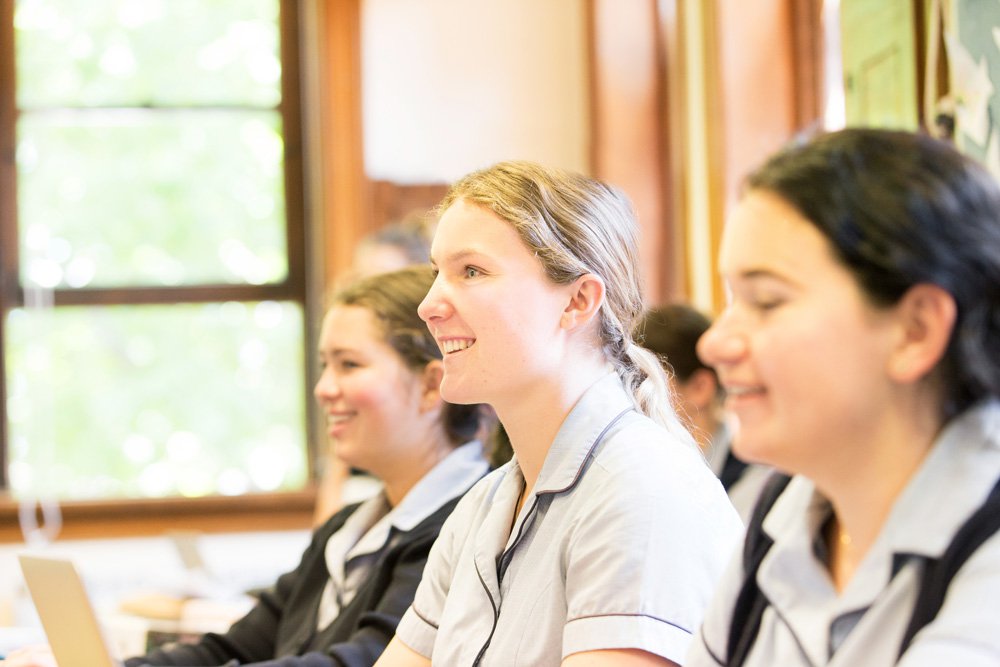
Years 11 - 12 (Stage 6)
In Years 11 and 12 English continues to be a mandatory subject. The College offers the Standard 2 Unit course and the Advanced 2 Unit Course.
We offer English Extension Courses to students who wish to study three units of English in their Preliminary year and three or four units in their HSC year.
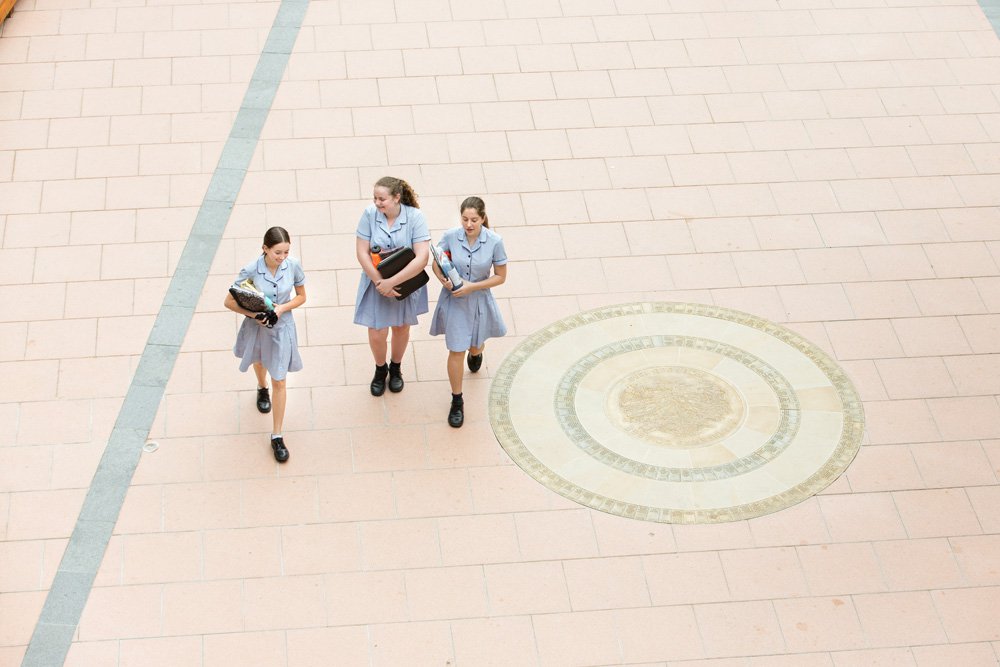
Mathematics
Following the tradition of the Sisters of Charity, students graduating from St Vincent's College are highly confident, skilled and independent students of Mathematics, ready to use the knowledge and problem solving skills acquired through their study to serve their families and community in hope, justice and generosity.
Years 7 and 8
All students in this stage follow the same course, based upon the NSW Mathematics Syllabus - Stage 4. The course covers topics in Number, Algebra, Measurement, Geometry, Statistics and Probability. Topics include Integers, Fractions, Decimals and Percentages; Algebra and Equations, Linear Relationships and Graphs; Pythagoras’ Theorem; Perimeter, Area and Volume; Probability and Data.
Whilst learning within each facet of Mathematics, students develop general skills in how to work mathematically. These include the literacy and numeracy skills required to understand and solve problems fluently and communicate the reasoning that justifies their conclusions. Technology, such as spreadsheet and graphing software, has been introduced. They are also taught good learning habits such as note taking, regular practice, and the confidence to ask questions readily.
Years 11 and 12
The College runs all Mathematics courses available in Stage 6. This includes Mathematics Advanced, Extension 1 and Extension 2. The College caters for all students by running the full range of courses, timetabling these in a way that allows flexibility in the path that students take on their journey of learning Mathematics.
Years 9 and 10
The Stage 5 syllabus includes core topics building upon the learning outcomes of Stage 4. Number skills are applied to Financial Mathematics. Algebraic skills are extended to Quadratic Equations and graphing skills to linear and non-linear relationships. Measurement is applied to Surface Areas and Trigonometry is added. Statistics is developed further to include Bivariate Data.
Optional topics are studied by students if and when they are ready for these. These include Logarithms, Parabolas, Circle Geometry and Polynomials.
Selected students can follow an Acceleration pathway, studying all Stage 5 content in Year 9 and going on to Stage 6 in Year 10. This has resulted in outstanding HSC results, as students have developed extra learning skills and study habits by being challenged in Year 9, which they then apply to their Stage 6 learning - in Maths Advanced, Extension 1 and Extension 2.
Maths Help and Other Support
At some point in their learning of Mathematics, all students should need some extra help. Whether it is merely a tricky question from homework or a need to catch up after being absent, “Maths Help” is the place to get the assistance needed.
Science
Fostering the development of strong female scientists at school is essential to tackle the many challenges that our society faces. Artificial intelligence, genetic modification, food and water shortages and climate change are among the many scientific issues that confront us daily in the media. These require a sound understanding of Science to better inform our evidence-based decisions.
Science also instils a sense of intrigue and triggers curiosity amongst many students. It is a fascinating, fast-moving area. Science can answer many questions. Why do I see lightning before I hear thunder? What is there on the surface of Mars? What is the Universe made of? How hot will the Greenhouse world be?
Science for Years 7 to 10
Science is a mandatory subject in Years 7 to 10, with students undertaking the study of a range of meaningful and relevant modules created specifically to interest our students. In Stage 4 (Years 7 and 8) students develop their laboratory skills and gain a solid grounding in the Living, Chemical and Physical World. These areas are developed in Stage 5 (Years 9 and 10) with further exploration of the impacts of Science in the fields of disease, genetics and space research.
Science for Years 11 and 12
The Stage 6 Science courses offered by the College include Biology, Chemistry, Earth & Environmental Science and Physics. Students may choose to study up to three of these courses for the Higher School Certificate. Science Extension is additionally available to study in Year 12.
Real World Experiences and Technology
At St Vincent’s College, students are offered a diverse range of scientific experiences within the classroom and in the field. They investigate explanations for the biological, physical and chemical world. Opportunities are provided to think critically and problem-solve individually and in teams. Students use data probes, analyse data, plan investigations and draw valid conclusions. Opportunities, using oral and written methods as well as technology, are given to communicate their acquired knowledge.
Our central city location places stimulating learning venues within easy reach such as the Observatory, Australian and Maritime Museums, Sydney and New South Wales Universities and Taronga Zoo.
Diverse Learning
The spirit of Ignatius is built on the belief that each person is created in the image of God. This calls us to respect the dignity and value of every individual. This is reflected in the ongoing commitment to assist each student to attain her full potential, including the commitment to support students with learning support needs and our gifted and talented learners.
The Diverse Learning program is offered at St Vincent’s College as a whole school approach and is guided by the Sisters of Charity Values; Mary Aikenhead Educational Philosophy; Ignatian pedagogy; NESA guidelines for Special Education; NSW Department of Education and Training Special Education Students Policy, and NSW Department of Education and Training Gifted and Talented Students Policy.
RESPONSE TO LEARNING NEEDS
The diversity of student learning needs is met in many ways including intensive reading/Maths groups, extension/co-curricular activities, a differentiated curriculum, in-class assistance, Disability Provisions for examinations, mentoring, counselling, emotional support, career assistance, profile meetings (parents, staff, external professionals), appropriate class placement, ongoing professional development of staff and referrals and links to outside organisations for assistance and enrichment
GIFTED AND TALENTED EDUCATION
At St Vincent’s College, our understanding of the nature of giftedness is based on Françoys Gagné's Differentiated Model of Giftedness and Talent. The model recognises that people can possess a diverse range of gifts and that students require a supportive, nurturing environment to ensure that this potential can be realised through exceptional achievement.
MEETING THE NEEDS OF GIFTED STUDENTS
The learning needs of gifted students are quantitatively and qualitatively different from those of other students and thus require the implementation and maintenance of clustered groupings of students who participate in specialised teaching programs and pedagogies particularly suited to their specific academic and affective needs.
In addition to this understanding St Vincent’s College also recognises the importance of integrating gifted education strategies into all Key Learning Areas (KLAs) to ensure that the core curriculum is relevant and significant for gifted learners and will support them in developing their gifts on a daily basis, within the context of the classroom.
The encouragement of inquiry-based learning and critical thinking is integral across the College curriculum and although this pedagogy is well suited to the gifted learner, other more specialised interventions are also offered.
ENRICHMENT CHALLENGES, LINKS WITH EXTERNAL COURSES AND MENTORING
A chance for gifted girls to pursue passions and interests is offered through enrichment challenges, links with external courses and mentoring. St Vincent's College believes that gifted students have considerable capacity to take on extra-curricular activities and recommends participation in the myriad of enrichment opportunities the college offers.
St Vincent’s College students participate in a wide variety of activities such as Philosothon, Ethics Olympiad, Festival of Dangerous Ideas, Da Vinci Decathlon, Match Olympiad, Advanced Readers Book Club, Readers and Writers Enrichment Group, Chess Club and additional opportunities that present over the year.
LEARNING SUPPORT
At St Vincent’s there will be students who may experience difficulties with learning which may arise at any time throughout a student’s school life. The classroom teacher is responsible for meeting the specific learning needs of students with difficulties. The Learning Support team plays a crucial role in ensuring that the specific learning needs of students experiencing difficulties in learning are met.
HSIE
This key learning area encompasses the subjects of History, Geography, Elective History, Commerce, Ancient History, Business Studies, Economics, Extension History, Legal Studies, Modern History and Society & Culture across Years 7-12.
Geography
This subject enables students to explain spatial patterns, evaluate consequences and contribute to the management of environments. As a mandatory study course, students have the opportunity to engage in field and practical work, involving them in collaborative and independent learning. Students demonstrate the ability to communicate geographical information and use geographical tools for inquiry.
History
The study of History involves a process of inquiry that develops the skills of research, analysis, evaluation and synthesis and will enable them to be independent learners for the rest of their lives. The focus of the study of history across these years includes the study of Ancient civilisations including Rome and China, the Middle Ages including Vikings and Japan, as well as the Age of Discovery including the Spanish Conquest of the Americas. Additionally, students develop knowledge of the modern era including the Industrial Revolution and Movement of People around the world, Australians at War, movements relating to the Rights and Freedoms of individuals and groups in the 1950s and 60s and Popular Cultural impacts on society in the later half of the 20th Century. These topics are curated through a variety of methodologies including source and film analysis.
Commerce
Commerce provides the knowledge, skills and values that enable students to understand consumer, financial, economic, business, legal, political and employment issues. It allows insights into commercial and legal processes and competencies to enhance personal consumer and financial management. Commerce assists in developing students’ consumer and financial literacy skills which enables them to participate in society, make informed decisions and apply commercial problem-solving skills.
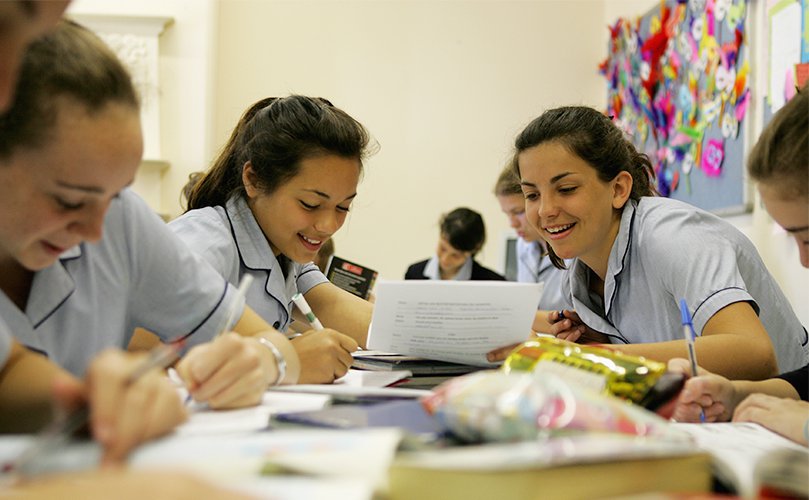
Stage 6 HSIE Electives
In Stage 6 the HSIE Department provides a choice of 7 electives:
Ancient History (2 Unit)
The Preliminary Ancient History course offers students the chance to examine the methods used by historians and archaeologists to investigate the past and consider the impact of science on these disciplines and the ethical issues which arise. Case studies then include Ancient Human Remains, the Celts in Europe, Boudicca: Resistance to Roman Rule and Roman Britain. Students undertake their own Historical Investigation. The Ancient History HSC course has a core study which is an investigation of Pompeii and Herculaneum. Students then study ancient societies such as the Ancient Society of Sparta, the Personality of Agrippina the Younger and The Historical Period of the Augustan Age.
Business Studies (2 Unit)
The Year 11 course is structured for students to investigate the role, operation and management of businesses within our society. Factors in establishing, operating and managing small businesses are integral to this course. Students also develop their research and analytical skills and have the opportunity to apply their knowledge to practical situations through the development of a Business Plan for a small business. In the Year 12 course, the focus is large businesses, many of which operate on a global scale. Students study the key functions of businesses: Operations, Marketing, Finance and Human Resources. For each of these key functions, students investigate their roles, influences, processes and management strategies.
Economics (2 Unit)
The Year 11 course is essentially microeconomic in nature, focusing on aspects of the economic behaviour of consumers, business and governments. Much of this behaviour is influenced by the operation of markets. Two key markets, the labour market and the financial market, are examined in detail. In the Year 12 course, students focus on the management of an economy and therefore the course is essentially macroeconomic in nature. The course investigates the impact of the global economy on the Australian economy and the links between economic issues and the management of the Australian economy. Economics develops students’ analytical, problem solving and communication skills.
Extension History (1 Unit)
At the end of Year 11 students are given the opportunity to undertake a further unit of History called History Extension. These students undertake a major historical project on a topic of their own choosing. They also study the nature of history and how and why interpretations change over time.
Legal Studies (2 Unit)
This course focuses on the way in which law is generated, how it is structured and how it operates in Australian and international contexts. Learning about our legal system will allow students to investigate the way our society operates and the influences that shape it. Students will develop an understanding of the implications that legal decisions can have for Australian society and the ways in which the legal system can affect the lives of Australian citizens. A critical understanding of the processes of reform and change will help students to contribute to making our society more equitable for all.
Modern History (2 Unit)
The Preliminary Modern History course has at least two case studies which may include the American Civil War, the Cuban Revolution and the Meiji Restoration of Japan. The core study is the World at the Beginning of the Twentieth Century. Students undertake their own Historical Investigation. The Modern History HSC course has a core study which is a source-based study in relation to the concepts of Power and Authority with a special focus on Nazi Germany. Modern History students currently study the USA 1919 - 1945, the Conflict in the Pacific 1937-1951 and the Civil Rights Movement of the 1950s and 1960s, but these topics may vary from year to year.
Society and Culture (2 Unit)
The central concern of this subject is the interaction of persons, societies, cultures, environments and time. Society and Culture draws on cross-disciplinary concepts and social research methodologies from anthropology, communication, cultural studies, media studies, philosophy, psychology, social ecology and sociology. This subject has direct relevance to the immediate needs of students and to their future lives by enabling students to develop understanding of: themselves, their own society and culture and, the societies and cultures of others. In the HSC, Society and Culture all students complete a Personal Interest Project which is 40% of the final HSC mark.
Society and Culture (2 Unit)
The central concern of this subject is the interaction of persons, societies, cultures, environments and time. Society and Culture draws on cross-disciplinary concepts and social research methodologies from anthropology, communication, cultural studies, media studies, philosophy, psychology, social ecology and sociology. This subject has direct relevance to the immediate needs of students and to their future lives by enabling students to develop an understanding of themselves, their own society and culture and the societies and cultures of others. In the HSC, all students of Society and Culture complete a Personal Interest Project which is 40% of the final HSC mark.
Languages
Language learning has always been a valued endeavour at St Vincent’s College, not only by the College but by students and parents as well.
At St Vincent’s College, we believe in the importance of language learning to foster global citizens and to inspire lifelong learners with a passion for language and culture. Using current language learning methods, our topical and up-to-date language courses reflect the modern Italian and French spoken around the globe. We take a fun, animated and skill oriented approach to our lessons incorporating practical skills and experiential learning. Our communicative approach to language learning provides students with the skills to communicate in realistic spoken contexts in the target language as well as a focus on literacy skills in written contexts. We seek to create a dynamic classroom environment in which all student contributions and achievements are valued and celebrated. Studying a language allows students to reflect on their own heritage, culture and identity whilst learning about other cultures, beliefs and values. Language skills are a valuable stepping stone to many university courses and an asset in many career paths.
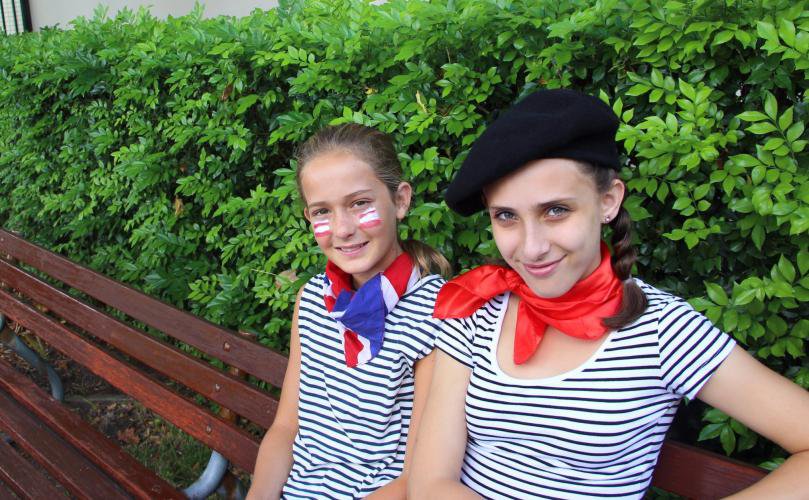
Year 8 Stage 4: Students elect to study French or Italian
Year 9 & 10 Stage 5: French and Italian elective
Year 11 & 12 Stage 6: French Beginners; French Continuers; French Extension
Year 11 & 12 Stage 6: Italian Beginners; Italian Continuers
Teaching and Learning
The teaching of languages focuses on the development of four macro skills: Reading, Writing, Speaking and Listening. At St Vincent's, we endeavour to engage students in active language learning. We seek to create a dynamic classroom environment in which all student contributions and achievements are valued and celebrated. We take a communicative approach to language learning; from the outset, girls are encouraged to use the target language in realistic spoken and written contexts.
At St Vincent's College we are lucky to have a multitude of language-learning resources available to staff and Students. Technology is an integral part of teaching and learning at the College, and the languages classroom environment is enriched by the use of a range of digital media. Students of languages across all years are exposed to interactive computer programs and online activities, developing a variety of authentic learning strategies and using the language in realistic scenarios.
All students of languages are encouraged and supported to reach their full potential. We endeavour to extend gifted linguists and those with significant prior knowledge of the languages offered by providing extension materials, including independent project-based use of technology.
Students at St Vincent's College also have the opportunity to engage in language learning across the curriculum and becoming “leaders” in Languages. For example, students in years 9 to 11 have the opportunity to become Language Ambassadors, and promote the importance of multi-lingualism as global citizens.
Why study languages?
While studying French or Italian at St Vincent's College not only do you learn to communicate in a foreign language, but you can also learn how languages work. Learning a language opens the path towards new ways of thinking and gives you different insights into your own culture and language. By speaking another language you may even discover new sides of your personality!
At St Vincent's College, we hope to inspire lifelong learners with a passion for languages. Many students continue their language studies beyond their school years, as many universities are offering an increasing number of courses requiring one year's overseas study in a foreign language. Language skills are a valuable asset in many career paths.
Language Study Tours
At the College, we offer Study Tours to France and Italy to provide our language students with the opportunity to be immersed in the language and culture and to study the language, history and art in a real life context. It also allows students to embrace the diversity of the contemporary world. This opportunity is available to language students from Year 9 through to Year 12.
PDHPE
Personal Development, Health and Physical Education (PDHPE) at St Vincent’s College aims to inform and empower our students through a strengths based approach equipping them with the knowledge and skills to make healthy informed decisions as they navigate through their changing stages of life. We have a strong focus on the holistic development of the whole person, fostering self-confidence, resilience, and physical well-being, as well as decision-making, respectful relationships, inclusivity and social justice. Students develop an understanding of their rights and responsibilities in treating all people with dignity and respect and living out the Gospel values.
Our Vision
We have a strong focus on the development of self-confidence, resilience, physical well-being, as well as social, physical and decision-making and skills. In practical lessons there is a strong emphasis on enjoyment and embedding positive attitudes towards sport and lifelong physical activity.
Girls at St Vincent’s are encouraged to assume increasing responsibility for managing their own lifestyles and achieving optimum health. The PDHPE Programs and units are designed to cater to the differing needs and abilities of the students. Each girl is encouraged to develop genuine individuality, whilst being sensitive to the rights of others. Gospel qualities of unselfishness, tolerance, compassion, politeness, courtesy, responsibility, sensitivity, respect and consideration for the rights, needs and feelings of others are fostered and encouraged at all times.
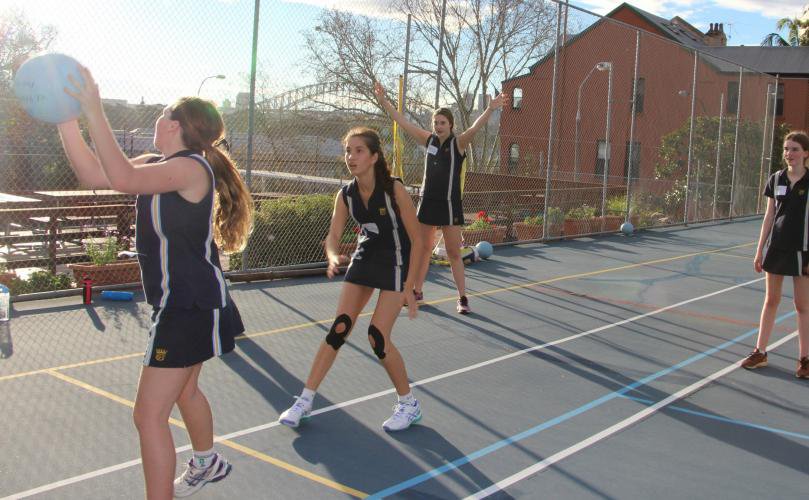
The PDHPE Faculty provides the students of St Vincent's College a program of study from year seven to year twelve. Subject currently offered are:
Year 7-10 Personal Development, Health and Physical Education
The compulsory 7-10 PDHPE syllabus includes three strands:
- Health, Wellbeing and Relationship
- Movement Skill and Performance
- Healthy, Safe and Active Lifestyles
The content is organised around 5 propositions - Strengths based approach, value movement, focus on educative purposes, include a critical inquiry approach and develop health literacy. PDHPE is delivered through a strengths based approach providing students with authentic ‘real world’ experiences and addresses contemporary issues such as consent and social media use. This allows students to develop the knowledge, skills and attitudes needed to understand, value and make healthy informed decisions as empowered global citizens.
Students also participate in challenging and enjoyable physical activity, improving their capacity to move with skill and confidence. Participating in regular exercise can also boost memory and thinking indirectly by improving mood and sleep, and by reducing stress and anxiety and allow students to maintain their own and others' health.
Physical Activity and Sports Studies (PASS)
The College offers Physical Activity and Sports Studies (PASS) as an elective. PASS promotes learning through movement applications in which students experience, examine, analyse and apply new understanding to a range of contexts.
The Program of study covers three broad areas:
- Foundations of Physical Activity
- Physical Activity and Sport in Society
- Enhancing Participation and Performance
2 Unit Personal Development, Health and Physical Education
The current stage 6 Course in Years 11 and 12 aims to develop each student's capacity to think critically about key issues related to health and physical activity to make informed decisions that support and contribute to healthy active lifestyles and communities. Students examine the scientific foundations of human movement - anatomy, physiology and fitness and safe participation by learning about advanced approaches to training or sports medicine concepts.
2 Unit Community and Family Studies
Community and Family Studies aims to provide students with an in-depth knowledge and understanding about living in society and the complex nature of groups and structures within. Consequently, it is an interdisciplinary course drawing upon selected components of family studies, sociology, developmental psychology and general life experiences. There is also a strong focus on communication and research skills with students in HSC being required to complete an individual research project (IRP).
Performing Arts
Performing Arts at St Vincent’s College includes the curriculum subjects Dance, Drama, Entertainment and Music. The College also offers opportunities for students to participate in a number of Co-curricular lessons and Ensembles such as Choir, Orchestra, Rock Bands, Dance Ensembles, Drama Ensemble, Circus Skills, Theatresports and the Shakespeare Carnival, as well as the College Production.
Recent highlights include productions of Matilda, Rime of the Ancient Mariner, The Wizard of Oz, The Tempest, A Midsummer Night’s Dream, The Venetian Twins and The Witches. Students perform at College community events such as Spring Fair and Speech Night, as well as Performing Arts events including the Annual Dance Concert at the Seymour Centre, Year 12 Design Create Perform, Drama Night and Music Night.
Performing Arts students at the College have been nominated and selected to perform at prestigious State-wide events such as Callback, Encore and Onstage.
Years 7 to 10
Music is a mandatory subject in Year 7, (Stage 4) with students undertaking the study of a range of engaging and relevant topics created specifically to interest our students.
In Stage 5 (Years 9 and 10) students can select to study Dance, Drama and Music as Electives giving them many creative options for their pattern of study.
Years 11 & 12
In Stage 6 Performing Arts courses offered by the College include Dance, Drama, Entertainment (VET) and Music 1, Music 2 and Music Extension. Students may choose to study any number of these courses for the Higher School Certificate.
PHOTO GALLERY
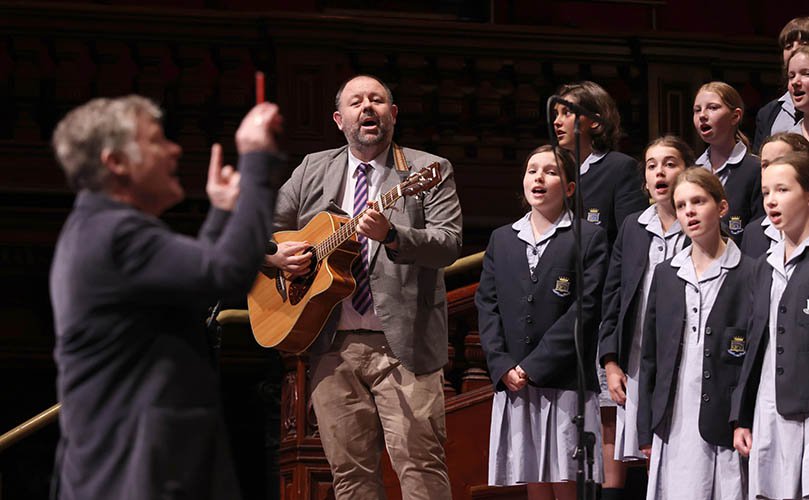
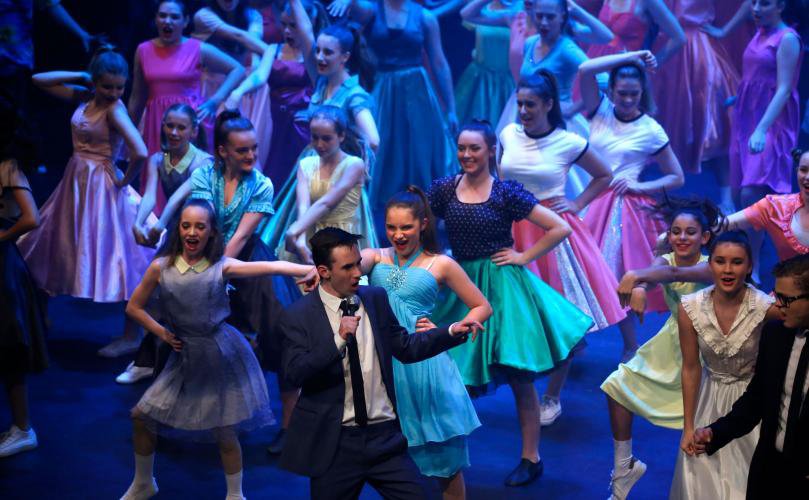
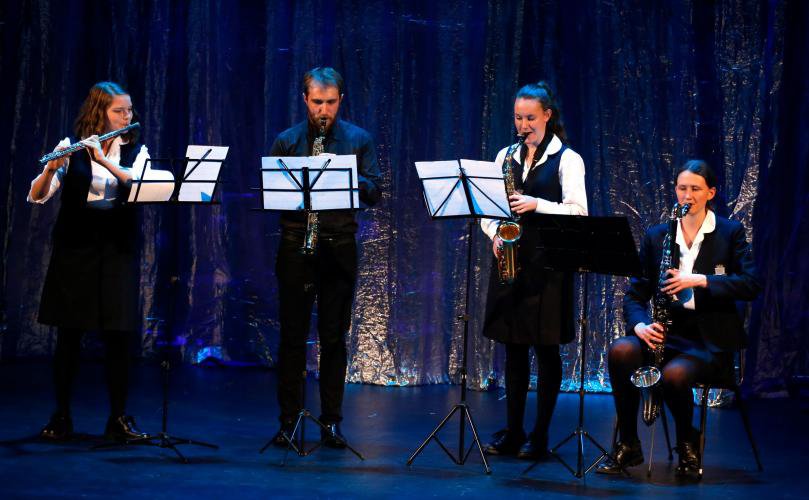
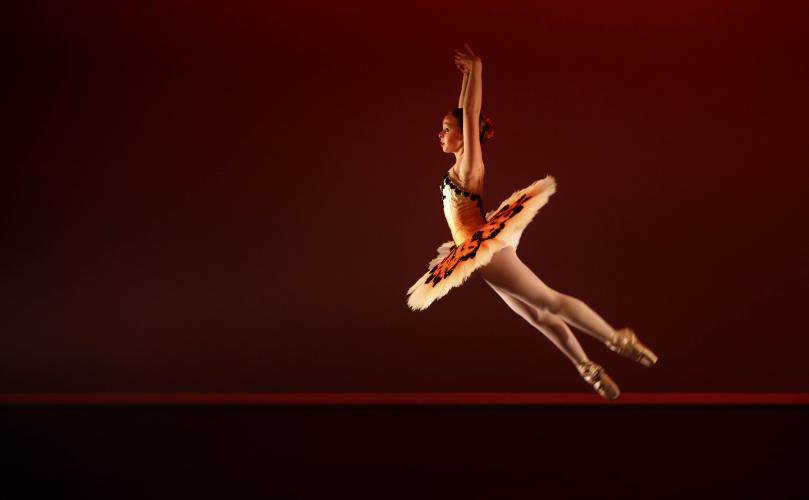
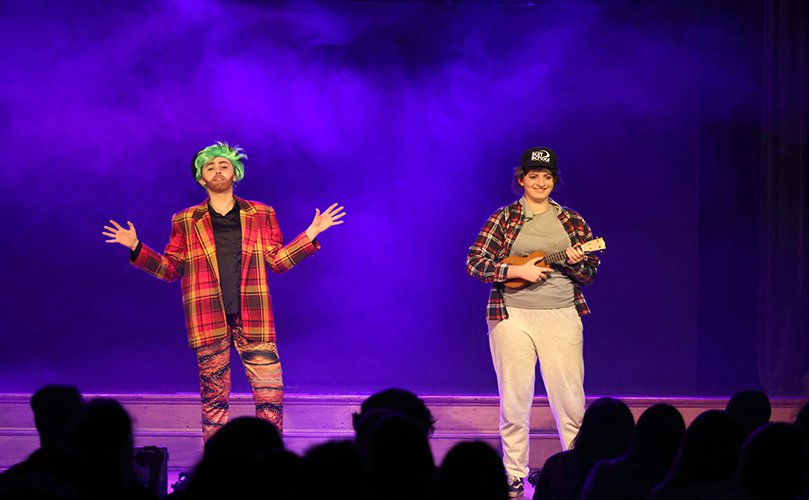
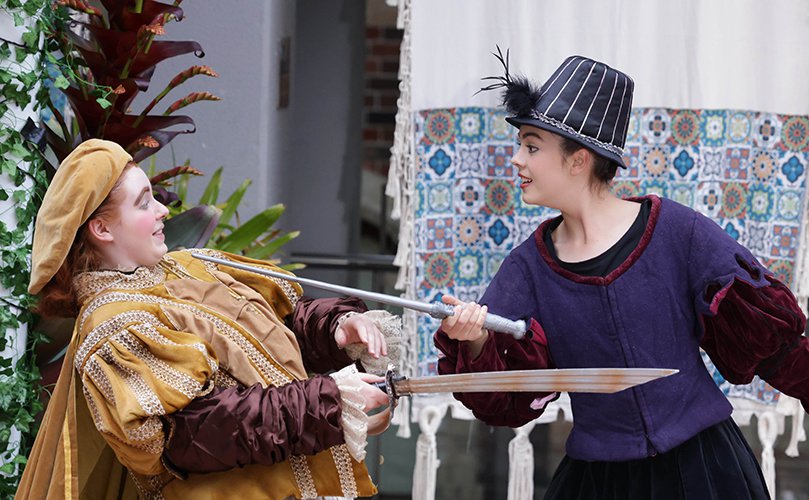
STEM
Continual advancements in technology are changing how students learn, connect and interact daily. Skills students develop through STEM provide them with the foundation to succeed at school and beyond. Research indicates that 75% of the fastest growing occupations require STEM skills and that Australian businesses competing in a global economy will need more employees trained in these specific subjects.
Women in particular are commonly underrepresented in the traditional STEM subjects in schools and universities, however, engaging women in STEM is vital to solve many of our current world challenges.
STEM is an approach to learning and development that integrates the areas of Science, Technology, Engineering and Mathematics to solve real world problems. It focusses on students developing future focused skills including:
- problem solving
- creativity
- critical analysis
- teamwork
- independent thinking
- initiative
- communication
- digital literacy
STAGE 5
iSTEM is a NSW Department of Education approved elective course that students can study in Stage 5 (years 9 and 10). The aim of the course is to encourage and enhance student interest and skills in STEM. Students engage in project-based learning to appreciate the scope, impact and pathways into STEM careers and learn how to work collaboratively, entrepreneurially and innovatively to solve real world problems. STEM was developed in collaboration with industry, business, government and universities to ensure that students are developing future focused STEM skills.
Throughout the course, students are provided with learning opportunities to develop knowledge and skills of up-to-date technologies such as 3D printing, laser cutters, augmented and virtual reality, drones, smart robotics and automation systems, Artificial Intelligence and a range of digital systems. Students gain and apply knowledge, deepen their understanding and develop collaborative, creative and critical thinking skills within authentic, real world contexts. The course uses inquiry, problem and project-based learning approaches to solve problems and produce practical solutions utilising engineering design processes.
CO-CURRICULAR OPPORTUNITIES
The Elisabeth Carey STEM club is a co-curricular club which meets on Friday’s at lunchtime. It is for students who are passionate and have an interest in STEM based projects. The focus of sessions is on design skills and project-based learning specific to student’s personal interests.
Technological and Applied Studies (TAS)
Promoting creativity and quality in design
St Vincent's College provides girls with opportunities to develop their confidence and competencies in the KLA of Technological and Applied Studies. Technology is recognised as a significant component of modern Western society, and it is an essential part of quality education for girls to enable them to fulfil their potential and participate fully in society.
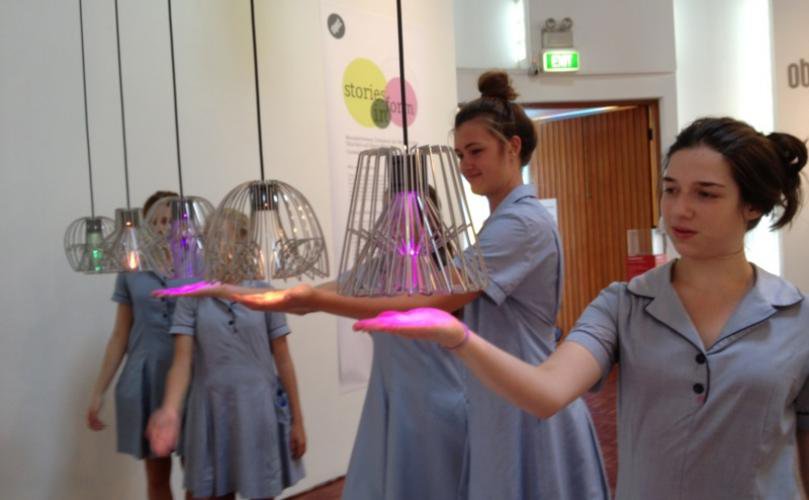
The fundamental notion of meeting our needs and the needs of others is seen to be a motivation for creativity and quality in design processes. Within the curriculum, Technology offers students experience of aspects of contemporary design practice. All units of work offer authentic design situations that require informed and realistic solutions and involve both material and digital forms of learning and communication Confidence in achieving the mastery of material technologies, skills and tools is an essential component of learning. Each student is encouraged to reach her full potential in a safe but challenging environment. The Department has a commitment to the use of digital and graphic technologies as design tools and practices and in the communication of design ideas and solutions.
Technological and Applied Studies (TAS) Courses at St Vincent’s College:
Stage 4 - Mandatory Technology to all students in Years 7 and 8.
Stage 5 - Design and Technology, Food Technology and Textiles Technology Elective courses are offered in Years 9 and 10.
Stage 6 - Design and Technology, Food Technology and Textiles Technology are offered in Years 11 and 12.
Visual Arts
he study of Visual Arts provides students with opportunities to develop as confident, reflective and independent individuals.
Art as a disciplined mode of learning is concerned with matters of quality, value and significance. Imaginative interpretations of the world and reasoned critical responses made by teachers and students foster a learning environment that is based on respect for others' points of view, shared experiences and the individual's unique preferences. All courses are structured around the teaching of conventions and techniques of making and studying art and the exploration of materials and forms in relation to topics and concepts that engage the student’s imagination. The Visual Arts Department offers students skills and experiences in a range of forms including painting, drawing, printmaking, ceramics, sculpture, photography, video and digital media.
Visual Arts Courses at St Vincent’s College:
- Stage 4 - Mandatory Visual Arts is taught to all students in Years 7 and 8.
- Stage 5 - Elective Visual Arts and Photographic and Digital Media are offered to students in Years 9 and 10.
- Stage 6 - Visual Arts is offered to students in Years 11 and 12.
PHOTO GALLERY
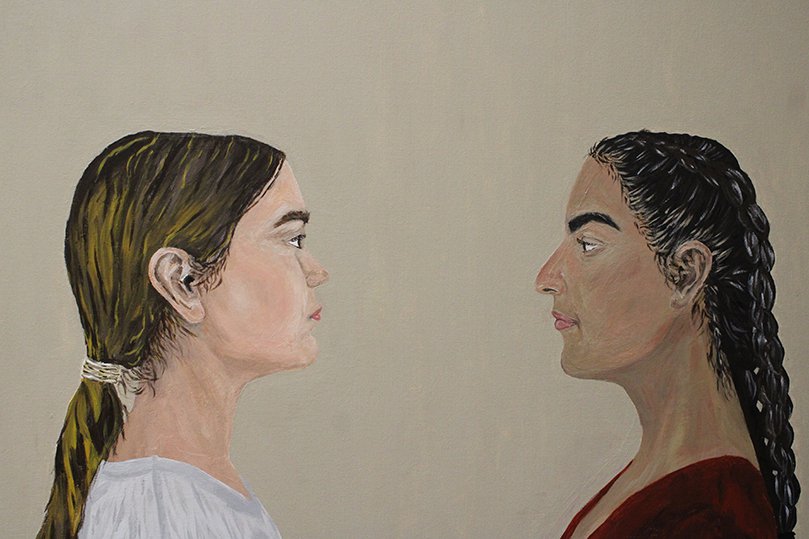
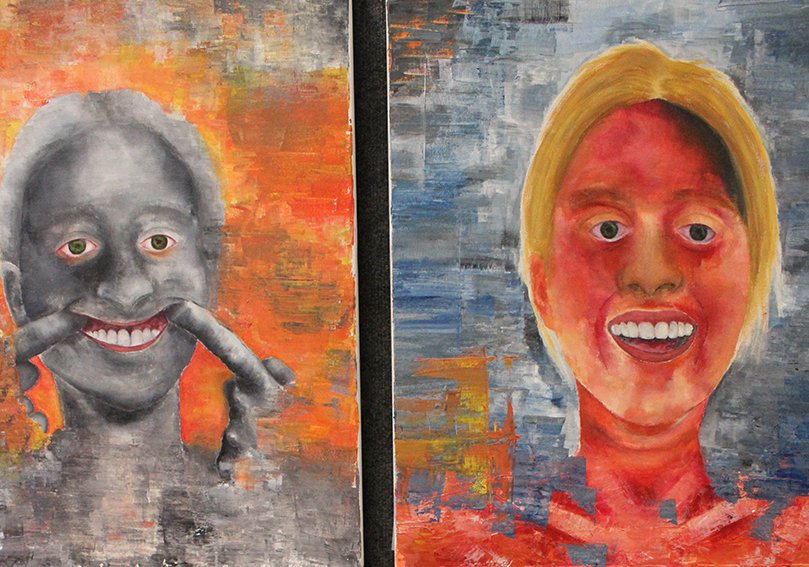
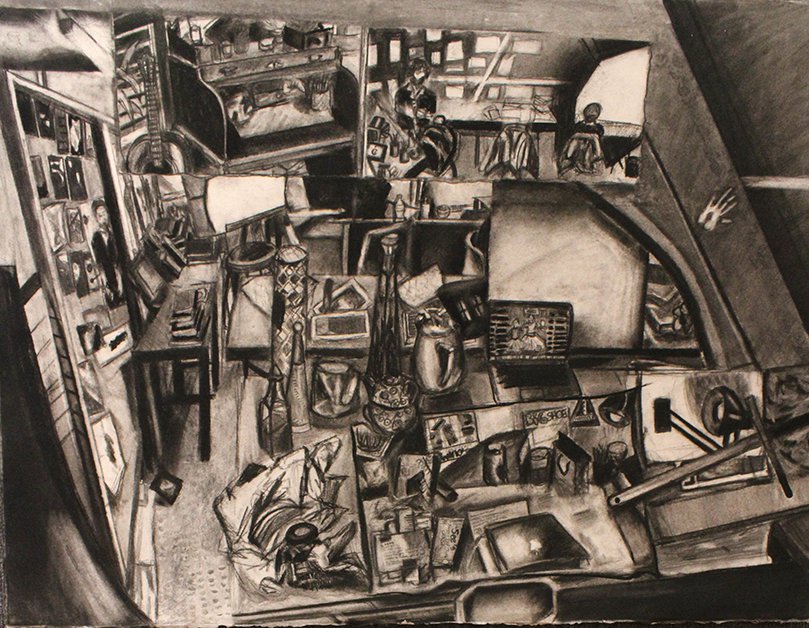
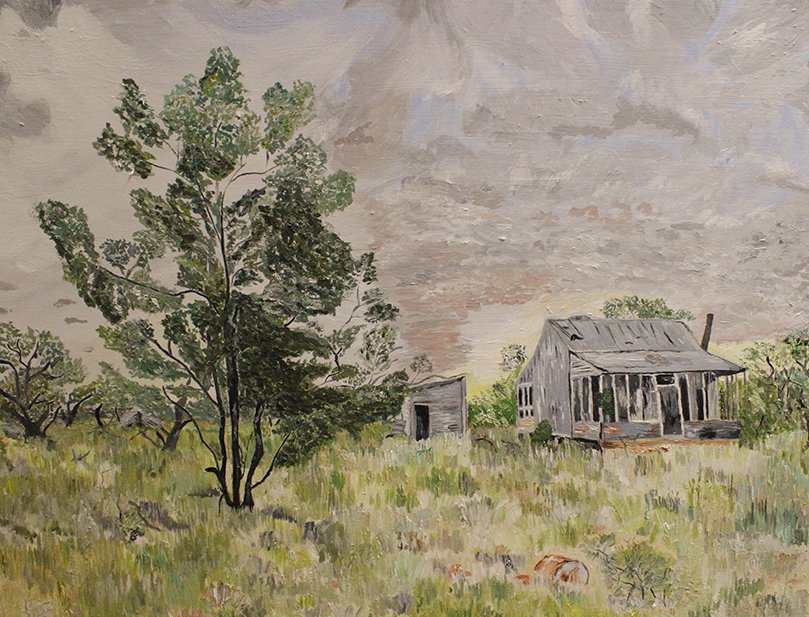
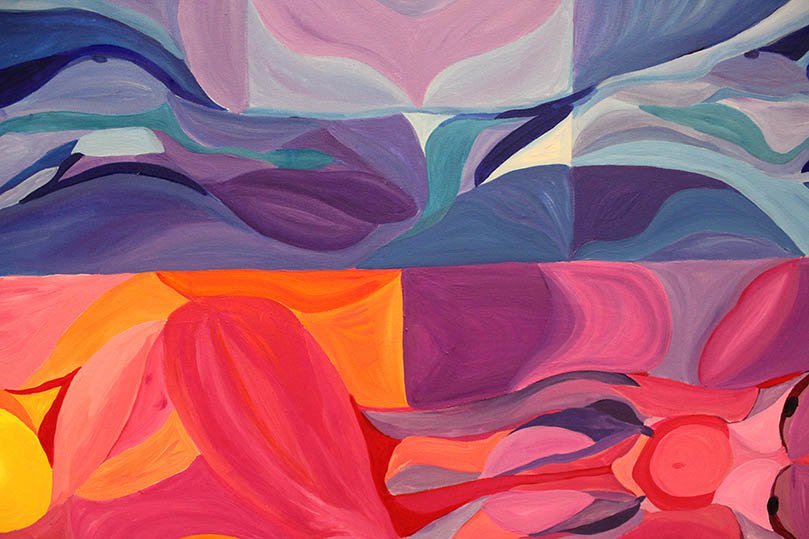
Developing Personal Excellence
Our educational philosophy recognises the individuality and giftedness of each student and it promotes the development of her intellectual, spiritual, emotional, physical and aesthetic qualities. The modern curriculum combines the Ignatian philosophy with the best of pedagogical practices.
Personal excellence is encouraged by offering each student a diverse and challenging curriculum delivered by professional, enthusiastic and caring educators.

